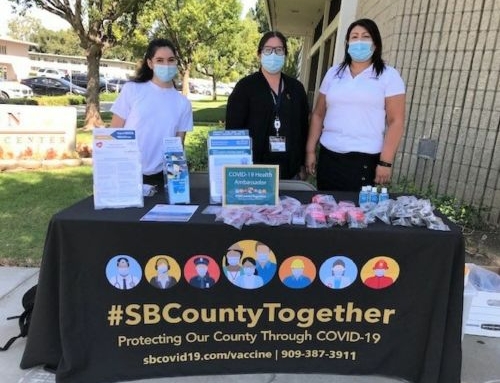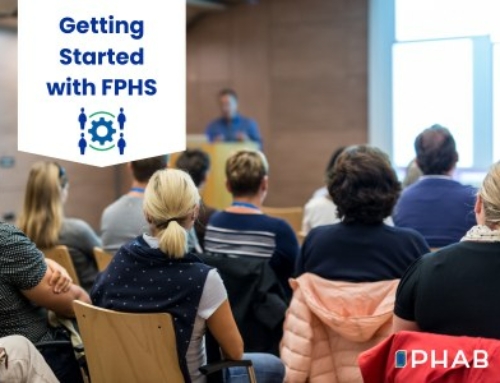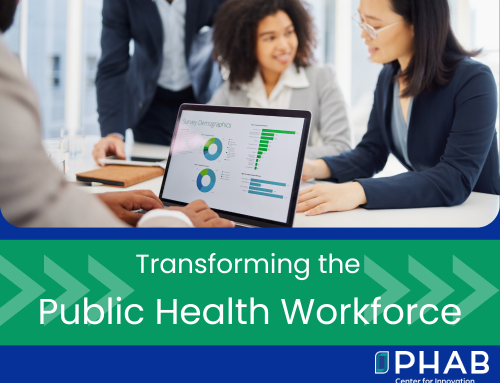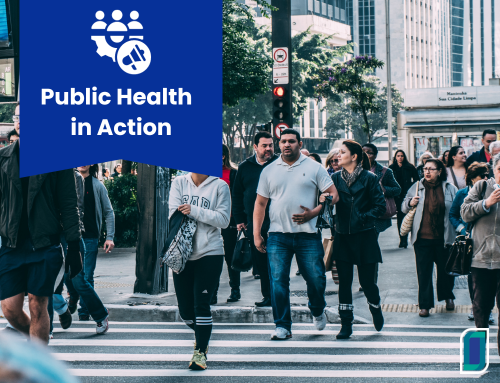Snapshot
“Connections” is a model service designed to help women who are dealing with mild-to-moderate postpartum mood and anxiety disorders by providing them with access to the services of an obstetrician/gynecologist and a licensed clinical social worker. According to Post-Partum Support International, perinatal mood and anxiety disorders affect 1 in 5 women in the United States. These mood and anxiety disorders are related to life stressors in combination with the hormonal changes affecting neurotransmitters in the brain. The services include individual counseling, an innovative hybrid treatment and support group, evaluation for co-occurring health conditions, medication management, and psychiatric consultation (when applicable). The model provides services utilizing the principles of Cognitive Behavioral Therapy, Mindfulness-Based Stress Reduction, and Solution-Focused Brief Therapy. The Connections program supports and nurtures the maternal-infant bond by encouraging women to bring their infants with them and to freely mother them during group and individual sessions. The program is offered to all women no matter their country of origin or language spoken, throughout the entire first year of their infants’ lives.
Problem Addressed
Our experience with women dealing with depression or anxiety issues in the postpartum period revealed multiple challenges in both diagnosis and treatment, primarily among women with socio-economic challenges. Some of these women had Medicaid for Pregnant Women, which only provides coverage during pregnancy and the two months following delivery. Other women had no coverage, which limited the number of times they came for services. Because of this, many only saw a provider once after delivery, at any point from 2-to-6-weeks postpartum. At this early stage women often had not yet identified symptoms or did not recognize them as concerns. This resulted in women suffering for extended periods before seeking help or continuing to live with the symptoms without ever receiving help. When women did seek services, treatment options were limited by lack of insurance and/or inability to pay. Additionally, regardless of ability to pay, treatment options in our community were limited by a lack of providers who specialized in postpartum issues. The services and treatment options that were available were often either rejected or inaccessible for a variety of reasons. Women had no child care or chose not to leave their young infants; they were reluctant to present to a mental health facility for a multitude of reasons, including stigma; they feared losing their child to social services; and/or they feared the unknown diagnosis. It became obvious to us that a specialized, infant-friendly, financially affordable treatment option was imperative if women were going to recover from PMAD.
Innovation Summary
The Connections Model program was developed to provide comprehensive postpartum mental health care to women dealing with PMAD. We became aware that many women referred to mental health treatment for PMAD were unwilling or unable to access satisfactory services. Women were often referred for treatment only to find themselves assigned to group treatment with others who were dealing with vastly differing issues. An example of this is women being assigned to a women’s issues group where the women may have been dealing with issues of divorce and menopause. Additionally, women were reluctant to go for services when they were unable to keep their infants with them. A number of women refused to seek treatment at a mental health organization because they did not feel they were dealing with mental illness. Finally, many women reported being unable to access care because they had no insurance. Evaluation of the research, other successful programs, and multiple conversations with local providers and the area Managed Care Organization (MCO) led us to develop the Connections program.
The Connections Model includes the following components:
- Group sessions
- Individual counseling
- Access to OB/GYN services
- Medication management
- Psychiatric tele-medicine
Funds received from the Anne Wolfe Mini Grant were used to purchase the supplies needed to set up the room, as well as the self-care supplies for participants and the therapeutic tools used in the group and individual sessions.
The group component of the model was developed to incorporate treatment, psycho-education and support. While many groups include both psycho-education and treatment, the idea of incorporating intentional support is a significant innovation in outpatient therapy. Each group session is 1 hour and 45 minutes in length and structured to include all three components. Additionally, the group is integrative in that the OB/GYN health care provider is also invited to participate in group sessions.
Physical health management is another innovative component of the Connections Model. Women with gestational hypertension, which may result in elevated blood pressure in the postpartum period, are able to have their blood pressure monitored and their medication managed when they come in for their Connections appointments. In addition, women with a history of thyroid issues who are experiencing somatic complaints or atypical symptoms are able to have labs drawn for evaluation and treatment, or referral as appropriate. The availability of these services helps reduce the number of outside appointments that a woman must schedule. In addition, these services allow for appropriate evaluation for medical issues that may contribute to post-partum mental health issues or that may mimic mental health concerns but could actually be better explained by a medical diagnosis.
The treatment environment is established to promote comfort and familiarity. Children age one or younger are welcomed. A conference room is transformed with pillows, blankets, low lighting, soft music and essential oils. A diaper changing station and nursing supplies are available, and a play area is provided for older infants. Women are encouraged to mother their infants, responding to their needs during group. These innovations further support a woman’s recovery and success.
The model is easily replicated in a health department or private clinic setting.
Being able to get treatment and manage my medication and bring my baby to a place I know and am comfortable with was the most important. – PROGRAM PARTICIPANT, CONNECTIONS MODEL
Outcomes & Impact
Since Connections began in November 2016:
- 130 women have been referred
- 51 women have had assessments
- 2 women were hospitalized for a total of 17 inpatient days
- 40 women had treatment plans that included group participation
- 13 women completed 6 or more group sessions
- 25 women competed at least 3 group sessions
- 100% of the women who participated in 3 or more group sessions had improvement in their PHQ-9 scores
- 6 women were referred for tele-psychiatry
- 12 women who participated in group sessions had medication prescribed and managed by the OB/GYN during their course of treatment
The overall impact of the program can be seen not only in the number of women directly served, but also within the mother-infant dyad, thus benefiting the entire family. At the end of their participation, the majority of women reported that they felt they had an improved bond with their baby, as well as more positive feelings towards mothering.
An unanticipated benefit of the program has been a heightened awareness of PMAD among staff of the prenatal and pediatric clinics at Cabarrus Health Alliance (CHA). This increased knowledge has resulted in women receiving education about PMAD both prior to delivery and once they are parenting. Therefore, the issue of PMAD has become more normalized within both clinics at CHA and has opened the door for communication, identification, and referral for all women.
I suffered longer with my last two pregnancies because I didn’t have help. This program saved me. – PROGRAM PARTICIPANT, CONNECTIONS MODEL
Challenges & Barriers
Barriers we have identified during our time working with the Connections program are not uncommon for women seeking any type of service, but are still significant in that they can prevent interested women from consistently participating in the program. Difficulties in accessing transportation is especially concerning. Even when women have access to the bus, many say they do not want to use the bus, because they worry about exposing their young infants to a large number of people. Additionally, using the bus system often requires multiple transfers and/or long routes. Another barrier is child care for children older than one year. Although sympathetic to this issue, we have chosen not to allow older children due to the heightened distractions they create, the size of our space and the emotional fragility of some participants who may not be able to tolerate the activity level of older children.
Some challenges we have addressed include finding a mutually agreeable time for group sessions. We decided on 10 a.m. – noon to allow women time to take older children to school or child care and still arrive on time. This time frame also ensures they will be able to pick up children from preschool or return home in time to meet an older child’s school bus.
Persuading women to try something new or unknown also continues to be a challenge. However, women who have benefited from participating are serving as wonderful success stories for the program.
General development issues were also present in the beginning and included developing processes, forms, and scheduling tools, and completing the training for all staff who would be interacting with the clients or program in some way. Finally, as with any program the financial support and sustainability of the program is an ongoing need. We have been very fortunate in this area as we were able to obtain a small grant that has allowed us to fund the supplies needed for the program.
Lessons Learned
- There is more that is the same about mothers than that which is different. The variance in socioeconomic status, race, and language is not more powerful than the fact that they are all mothers. It doesn’t matter who is in the group – the dynamics will work.
- Although many women screen positive on the Edinburgh Post Natal Depression Screening (EPDS), and/or express symptoms of depression or anxiety during appointments, many of those women choose not to pursue services even when those services are tailored to the specific needs of women in the postpartum period.
- Women often participate in fewer sessions than the model established, but any intervention helps.
- Women who enjoy the group process are very dedicated and attend consistently. Women who are consistent “no shows” may be communicating behaviorally that they prefer individual sessions, in which case they should be offered individual intervention.
- As with anything new, it takes time for staff to get a program fully up and running, and to get staff buy-in. Don’t give up!
Having other mothers to relate to made a big difference, just knowing you’re not alone. – , CONNECTIONS MODEL
Sustainability
The Connections Model is best carried out when there are supplies and materials that support psycho-education and treatment goals. We were initially able to access grant funds to purchase the items that helped transform the conference room to a treatment room. We were also able to use those funds to support self-care items for women to promote the skills and strategies taught in session. Identification of small, local grants or community merchants or partners that can make contributions to sustain these simple yet impactful materials will benefit the overall program outcomes.
The Connections Model includes three billable components within the clinic setting: individual psychotherapy, group psychotherapy, and brief primary care visit. By enrolling with the local MCO and various insurance providers, revenue can be generated to continue the program. Additionally, a sliding scale fee can be used to allow women without insurance the ability to access services at an affordable rate.
Providing education to the clinic staff and engaging them in the process for screening and identification, along with regular trainings and updates, will ensure that referrals continue. Integration of the treatment philosophy into the clinic setting may be the most important aspect of sustaining this integrative program.
Contributors

Achieving the Highest Level of Individual and Community Health through Collaborative Action.





